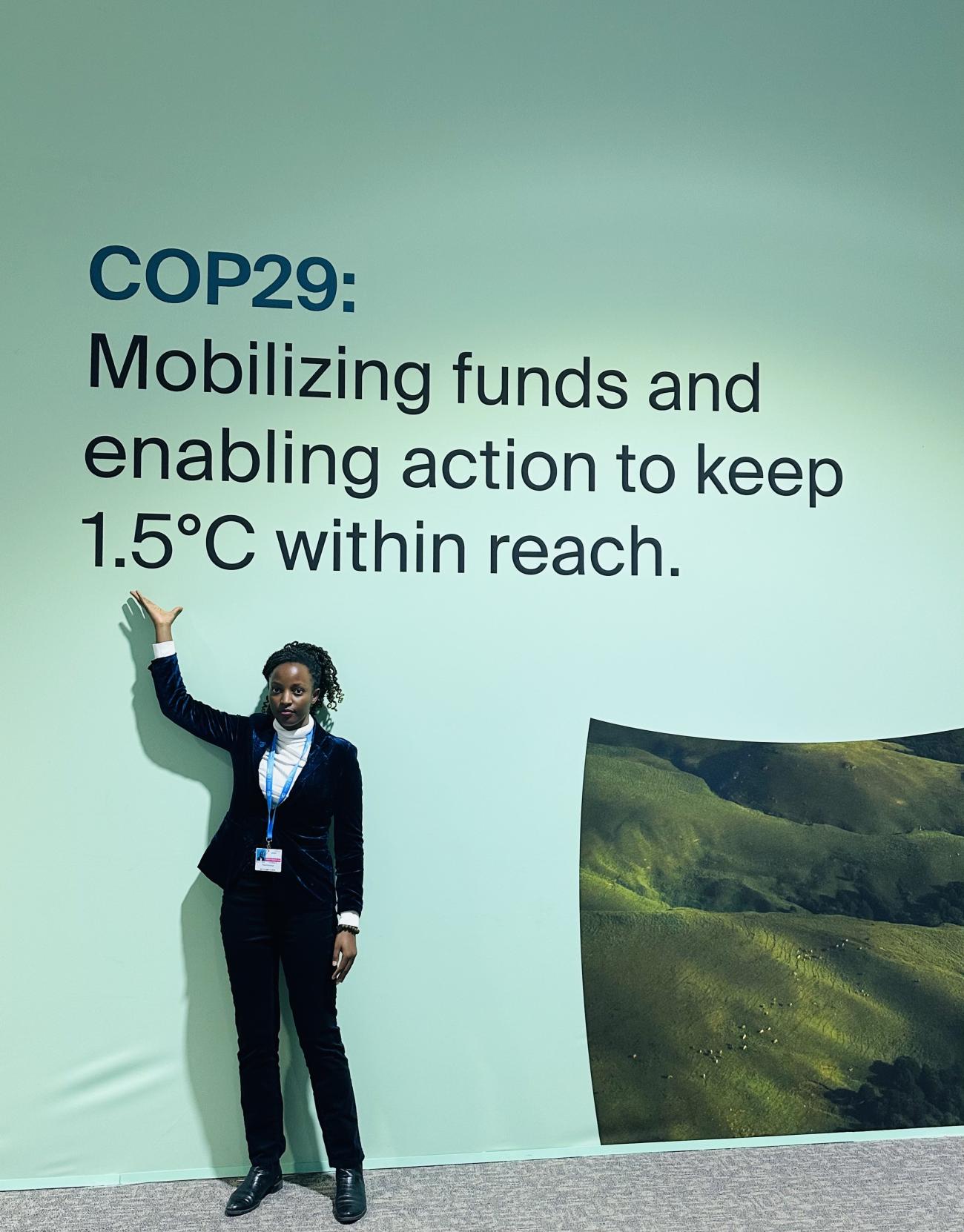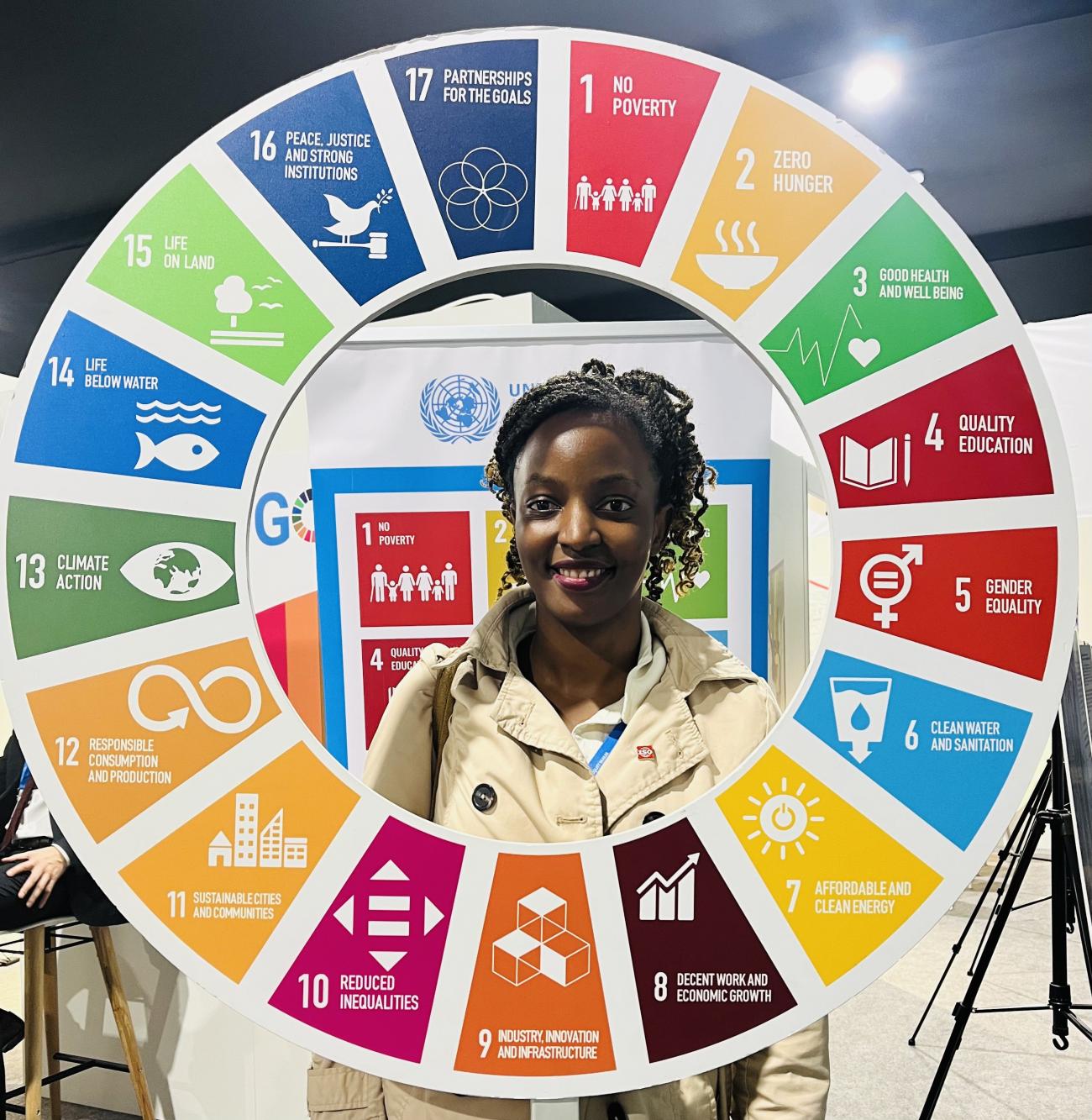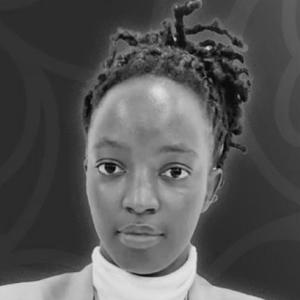Reality is not living up to the promises and responsibilities when it comes to addressing climate change.
ECI alum Rose Kobusinge is a Ugandan climate justice activist and advocate. She holds a master’s degree in environmental change and management from the University of Oxford, and she is a PhD candidate at Coventry University researching sustainable renewable energy futures in refugee camps in East Africa.
Rose was one of the International Organization for Migration’s (IOM) Changemakers and a delegate at COP29.
Here, she shares her perspectives on “how global climate processes and outcomes increasingly diverge from the principles of justice, shared but differentiated responsibility and urgency".
As the curtains fell on COP29 on the 23rd of November, my heart was heavy with frustration and despair. This is a “Finance COP” they said. As advocates, activists, negotiators, youth and change makers from highly vulnerable communities and countries, this framing of COP29 as a finance COP gave us an illusion that it was going to finally be our COP. Whereas I know several organisations particularly from the Global North and actors boycotted COP29 due to their reasons, and I feeling that this weakened the advocacy in some way, I still had some hope thinking that global leaders would finally stand up to deliver on their promises to the world’s most vulnerable countries. Little did I know that instead, it would be “business as you usual”, another “Let You Down Again COP” for the climate displaced women and children that have been forced to feel their homes in African countries, for the Small Island Developing states, for the indigenous people all over the world already losing their cultures and identities. Moreover, in a crisis that they contributed very little to.
Moreover, for years, we’ve been told, “We’re all in this together.” But are we? We may be in the same sea (climate crisis), but let’s not pretend we’re in the same boats. Africa’s boat is barely holding together, a patchwork of sinking, broken structures battered by waves of climate disasters, economic fragility and exploitation. Meanwhile, industrialized nations float comfortably in their reinforced yachts, shielded by centuries of fossil fuels, wealth and resource extraction from the most vulnerable.
When we raise our voices, demanding justice, responsibility and moral accountability, we are met with lofty speeches, hand claps, postponed urgencies, delays and empty gestures disguised as progress. The $300 billion pledge to support climate adaptation and mitigation in vulnerable countries is a prime example. While it may sound ambitious, let’s call it what it is: a thinly veiled attempt to pacify the Global South with crumbs falling off the table. As the chair of the Africa Group of Negotiators said, “it’s a joke”.
The Climate Finance and Loss and Damage fund we are asking for are not gifts. It is not charity. It is reparations for centuries of exploitation, for the ecological and social destruction wrought by colonialism, and for a climate crisis we did not cause. Yet, even when these reparations are promised, they come with strings attached, in amounts too little, too late, through processes designed to fail or through exorbitant loans.
Dear polluters, I mean dear leaders of developed countries, the message could not have been clearer: Africa is on its own, the most affected and at-risk communities are on their own.

The bitter truth
When has any Western or Eastern nation ever come to save Africa without serving its own interests? Let’s be honest: the investments and aid they offer are not acts of goodwill. They are calculated moves to secure influence, resources, and economic returns. Whether it’s loans that plunge us into deeper debt or climate finance tied to conditions that benefit their corporations, history has shown us that their priority is themselves. Those countries protect their economies first. They always have, and they always will. The earlier we accept this reality, the sooner we can begin building a future where Africa depends on its own strength, creativity, and resilience.
Here is the bitter truth: no one is coming to save us. We are in this alone. Waiting for the West or East to act in our best interest is a strategy destined to fail. We cannot keep placing our future in the hands of those who view us as an afterthought. Africa must raise its own resources for climate adaptation, disaster risk reduction, and environmental restoration. This isn’t just about survival; it’s about sovereignty. It’s about reclaiming the power to shape our destiny in a world that has marginalized and exploited us for far too long.
We must:
- Reevaluate our budgets and priorities: Governments need to stop pouring resources into short-term gains or misplaced projects or luxury and instead invest in long-term climate resilience and sustainable development.
- Engage the private sector and philanthropists: Africa’s business leaders and changemakers have a crucial role in funding and driving climate action.
- Hold ourselves accountable: Transparency and governance are essential. Even if the West delivers trillions, without proper systems, corruption and inefficiency will undermine progress.
This means that when the “drop in the ocean” climate finance and funds come in, they should be viewed as supplementary not as the foundation of our plans. This mindset shift is critical.
A Call for Action and Agency: Africa must rise
The outcome from COP29 was not just disappointing — it was dehumanizing. The bureaucratic delays, unambitious targets, and outright indifference to the needs of vulnerable nations exposed a system that prioritizes procedure over progress. We came to COP29 with high hopes for bold commitments to adaptation finance. I left questioning a lot of things. What we got instead was more postponement, more empty words, and a cold reminder of global power dynamics.
For Africa, the takeaway is sobering but clear: we cannot afford to rely on a broken system that consistently places our needs at the bottom of its agenda. So, I have something potentially controversial to say. This isn’t a call to abandon the fight for reparations and justice. We must continue to demand accountability from those who created this crisis. But we must also stop waiting for them to act in our favour.
Instead, we need to reimagine what climate leadership looks like centred in Africa, driven by Africans, and designed for African realities. The path forward requires us to strategize, reevaluate, and rebuild from within. We need to:
- Protect and restore our environment for our benefit and the benefit of present and future generations, not just as an obligation to the global community.
- Build partnerships that prioritize mutual respect and shared goals, not dependence.
- Leverage our own talents, resources, and innovations to create homegrown solutions.
- Be accountable and transparent. Desist from the exorbitant and exploitative systems we inherited from colonial governments.
This is a call to action, not just for governments but for all Africans at home and abroad—civil society, the private sector, grassroots communities and well-wishers. We have the power to reshape our narrative and secure a sustainable future.

Rose Kobusinge and the UN's Sustainable Development Goals (SDGs)
Rewrite the climate action and development agenda
COP29 may have let us down, but it also taught us a valuable lesson: the world will not save us. West, East or whatever direction. We must save ourselves. If we wait, we drown. If we act, we rise. Africa’s “boat” in the climate crisis may be battered, but it is not beyond repair. With determination, strategy, and unity, we can rebuild it—stronger, more resilient, and ready to navigate the stormy seas ahead. I urge our leaders to turn the trajectory around. Yes, the level of utter hypocrisy by developed and polluting countries is appalling but most of our countries including mine (Uganda) are among the most vulnerable. So, we must do our part but putting Pan African values and our affected and at-risk communities first. We should neither accept nor reinforce the hypocrisy.
The future of our continent depends on our ability to stand together, not as victims of a broken system, but as architects of our own destiny. We must rewrite the economic, political, financial and energy systems to be able to achieve this.
So, all that said, COP29 like other COPs provided great opportunities for knowledge exchange and networking. For instance, I moderated several sessions, delivered speeches, and advocated for co-designed solutions, resource-sharing, and accessible funding for youth, women, migrants, refugees, and grassroots communities. I called for planned human mobility to be recognised as a tool for adaptation, recovery, and resilience. A proud highlight was launching The Reality, a short film amplifying the voices of flood-displaced people in Kasese and Kampala, thanks to Abayuuti Climate Action Network and partners like the UN Migration, IOM. Engaging with stakeholders reaffirmed my commitment to breaking the “business as usual” mindset—and working on real solutions. Investing in frontline communities and youth is the key to meaningful climate justice.
As it looks like we are in this alone, I know we are not powerless. Let’s rise.
Note: For a much “nicer” reflection post, visit my LinkedIn: https://www.linkedin.com/posts/rosekobusinge_cop29-cop29-ncqg-activity-7265350790091853826-EYCA?utm_source=share&utm_medium=member_desktop
Rose is an advocate for Climate Justice and Planned Human Mobility. Passionate about advancing both climate, social and mobility justice, her work focuses on amplifying the voices of children, women, youth, and individuals in vulnerable situations, including migrants, internally displaced people (IDPs) and refugees. Rose is also a researcher and policy advocate, working towards a just and equitable transition.
Find out more and connect with her:
linkedin.com/in/rosekobusinge
twitter.com/KobusingeRose1

